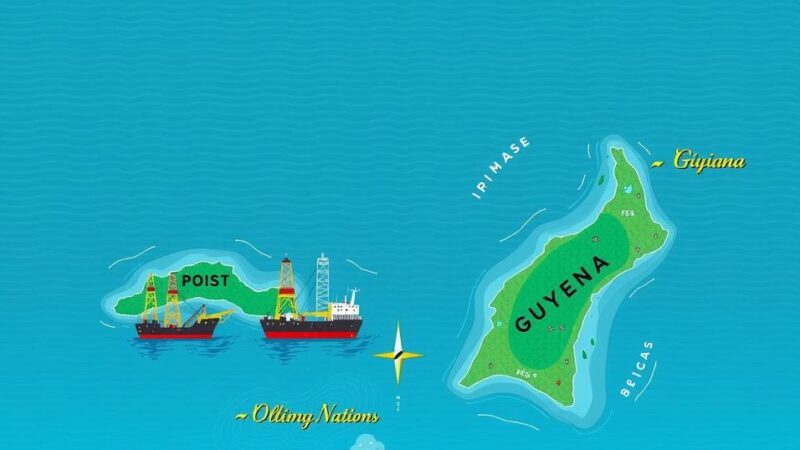Javier Milei, the President of Argentina, faces legal challenges related to a cryptocurrency endorsement that led to significant investor losses. Despite this, Milei’s political influence is likely to persist, representing a shift towards leadership that prioritizes decisive actions. Many citizens, reflecting a growing discontent with traditional politics, are supportive of Milei’s strategies in the face of economic adversity. This marks a broader trend of changing political dynamics globally.
Javier Milei, the President of Argentina, currently faces significant challenges, including calls for impeachment and legal scrutiny related to his advocacy for a cryptocurrency known as $Libra. Following his social media promotion on February 14, the value of the cryptocoin initially surged before crashing, resulting in substantial losses for investors. Milei maintains that his endorsement was not intentional, expressing, “I’m a techno-optimist … and this was proposed to me as an instrument to help fund Argentine projects.”
Despite these controversies, it is anticipated that Milei’s political influence is likely to endure. His leadership embodies a new constituency that reflects a societal shift, characterized by a growing skepticism of traditional institutions and a preference for assertive, problem-solving leaders.
A hypothetical individual, referred to as “Ricardo,” exemplifies a segment of Argentina’s workforce—those facing economic challenges who have returned to work post-pandemic under precarious conditions. Ricardo, a gig economy worker earning through various digital platforms, represents the upheaval that affects approximately 50% of Argentina’s workforce. Previously supportive of Cristina Fernández de Kirchner, many like Ricardo have shifted their allegiance to Milei, showing increased approval for his administration.
During the pandemic, government-imposed restrictions imposed financial strains on workers like Ricardo. The aftermath saw poverty rates soar above 40%, contributing to a sense of contentment as Milei undertook mass layoffs to tighten government spending. Ricardo viewed this as equitable, contrasting the hardships faced by those in precarious jobs with the job security of public employees, whom he derogatorily terms “ñoquis.”
Ricardo frequently consumes online content featuring Milei, who critiques the political establishment he labels “la casta.” Advocating for limited governance and extensive privatization, Milei resonates with Ricardo’s frustration regarding the wealth accumulation of politicians. Despite rising costs of living, Ricardo believes the trade-off for an economically stable future is justified under Milei’s policies.
Recent polling data indicates a perception of improving economic conditions among Argentinians, with inflation dropping to a lesser concern from its previous prominence. Ricardo’s endorsement of Milei is bolstered by his statement: “If printing money would end poverty, printing diplomas would end stupidity.” Influenced by social media, he has begun exploring high-risk cryptocurrency investments as a potential avenue for income enhancement.
This signifies a broader trend of emerging political subjectivity that focuses on the instability of modern employment structures and distrust in state institutions. The role of media influencers in shaping public opinion is paramount, and individuals increasingly prioritize direct solutions over comprehensive political platforms. The success of leaders like Milei hinges on their ability to address specific issues, marking a conceptual shift in political engagement.
Ultimately, as new political figures emerge, the underpinnings of their policies are likely to endure, suggesting a transformation in the landscape of governance globally. This reflective analysis underlines Milei’s political model as emblematic of a new societal outlook that prioritizes decisive action over traditional representational politics.
In conclusion, Javier Milei’s current political challenges, such as impeachment calls and legal issues regarding cryptocurrency promotion, do not seem to diminish his influence in Argentina. His leadership reflects the aspirations of a changing society that values bold leadership in the face of crisis. As evidenced by the example of Ricardo, a member of the handling workers, a significant portion of the population supports Milei’s initiatives despite economic hardships. This illustrates a shift in political representation towards candidates who prioritize direct solutions over extensive political frameworks. Consequently, the political landscape appears poised for change, embracing leaders who align more closely with the emerging realities of modern society.
Original Source: theconversation.com






